Versuchen GOLD - Frei
Setting a STANDARD
Hobby Farms
|November - December 2022
Certified Naturally Grown offers a grassroots option for responsible agricultural production and guidance.
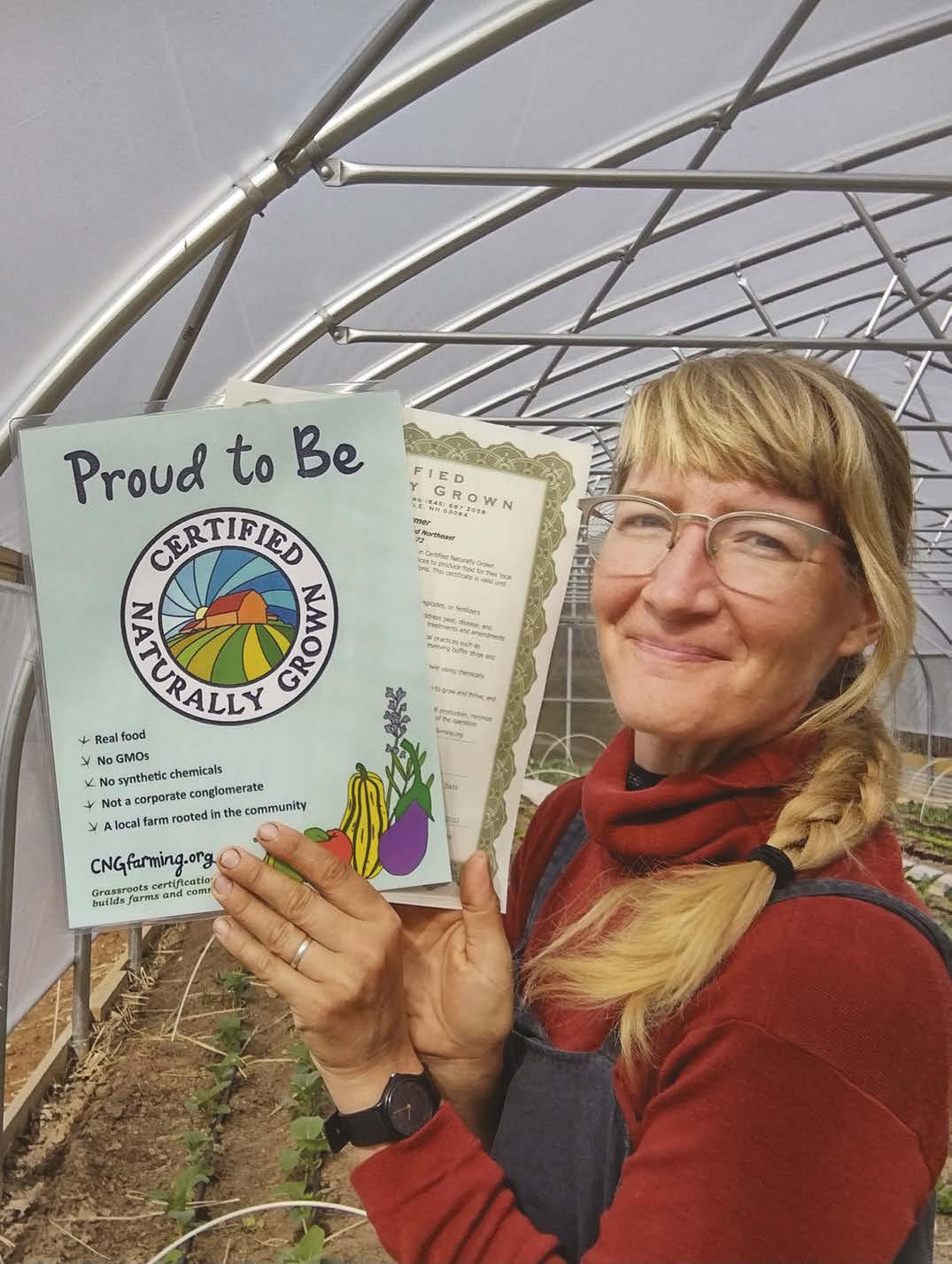
Across the world, trillions of honeybees are hard at work, pollinating vital crops and turning nectar into honey. In various locations near Wilmington, Delaware, more than a million of those bees return home to "microapiaries" under the care of Stephanie Grant.
"I am selective in my locations, as the properties cannot be treated with synthetic herbicides or pesticides," she says. "There needs to be an abundance of natural resources, including a variety of pollen and nectar sources, as well as a water source, and I need to ensure that the safety of the bees and people are always at the forefront. I believe we need to use nature and work with it, not against it." This belief system is what led Grant to pursue Certified Naturally Grown certification for her Sassy Bee Honey two years ago. Largely described as a grassroots alternative to the U.S. Department of Agriculture Certified Organic label, Certified Naturally Grown producers see it as that and more.
"I read the acronym somewhere online, and I did not know what it was, so I researched it," Grant says. "As I read, I thought it was completely in line with my current philosophy and many of the practices I already followed. I did have to make a few modifications to become certified, but they were changes that are for the betterment of the bees, so I was completely on board."
For beekeepers, USDA Certified Organic approval is difficult. To start, the National Organic Program doesn't have an apiculture standard, rather it relies on the livestock standards, a few items on the allowed synthetic-materials list, plus some "draft guidance" standards that have been issued but not made official by the National Organic Standards Board. Because bees can travel miles to forage, a USDA Certified Organic operation must prove their bees forage from plants not treated with prohibited materials in a 1.8-mile radius, which is difficult to come by.
Diese Geschichte stammt aus der November - December 2022-Ausgabe von Hobby Farms.
Abonnieren Sie Magzter GOLD, um auf Tausende kuratierter Premium-Geschichten und über 9.000 Zeitschriften und Zeitungen zuzugreifen.
Sie sind bereits Abonnent? Anmelden
WEITERE GESCHICHTEN VON Hobby Farms
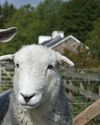
Hobby Farms
Tread LIGHTLY
Understand foot rot in sheep and goats.
7 mins
September/October 2025

Hobby Farms
Apple Tree Pruning
There's something very picturesque and pleasant about an orchard full of mature apple trees.
2 mins
September/October 2025
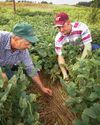
Hobby Farms
NO - TILL Fall TIPS
As winter approaches, readying a no-dig garden for the end of its growing season presents one of the biggest benefits of no-till: It's easy! Here's what you should know.
2 mins
September/October 2025

Hobby Farms
The Autumn Vegetable You Should Be Growing
If celeriac hasn't yet found its way into your garden plot, you're missing some good stuff. This surprisingly tasty bulbous root can be eaten fresh in salads or cooked and used in soups and stews.
1 mins
September/October 2025

Hobby Farms
THE ART OF Extracts
Annie Hartwig stumbled onto a niche business full of her favorite things.
6 mins
September/October 2025

Hobby Farms
Autumn Weed Control
This is a great time of year to get a grip on weeds. These fall weed-control tips offer actions you can take today to limit weed growth tomorrow.
5 mins
September/October 2025
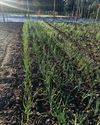
Hobby Farms
Homegrown Garlic
Whether you're a health nut or an avid cook or just looking to keep vampires away, garlic should be your go-to. Some of the chemical compounds garlic contains naturally help to enhance our immunity to viral, bacterial and fungal pathogens, and, when you grow your own garlic, you can take actions to boost the amount of these beneficial compounds. Growing your own also provides you with more options in terms of flavor profiles, longterm storage potential and access to fresh garlic and garlic scapes.
6 mins
September/October 2025

Hobby Farms
BEST LAID PLANS
You need to chart a course of action for your flock before disasters strike.
5 mins
September/October 2025

Hobby Farms
Woodlot Management
While financial gain may be the top reason property owners seek to manage timber on their property, creating a wildlife habitat is also near the top of the list. Michael Gass, a forester with Cardin Forest Products in South Pittsburg, Tennessee, dives into woodlot management, and its many advantages, for the small property owner.
4 mins
September/October 2025
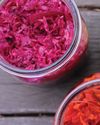
Hobby Farms
Food PRESERVATION Q&A
Stretch your dollar by learning how to preserve your harvest.
9 mins
September/October 2025
Translate
Change font size
